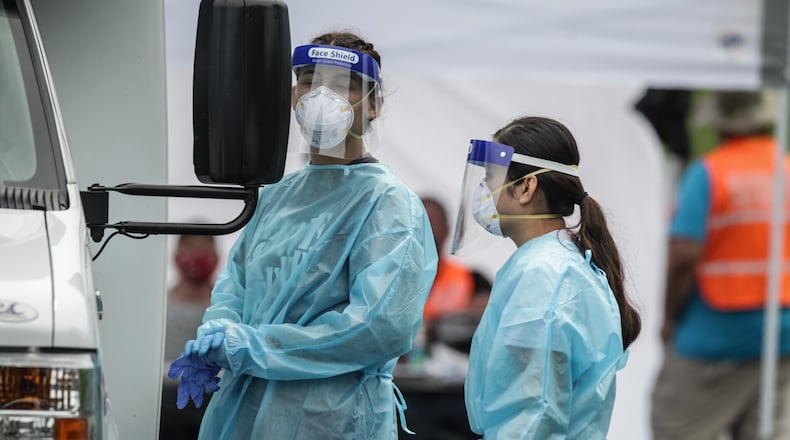Testing will be available for individuals with or without symptoms and no doctor’s orders are needed. The test has no out-of-pocket cost to the patient. Any individuals 12 years old and over can be tested but minors will need a signed consent of a parent and guardian.
For more information call (937) 586-9733 extension 0 or CommunityHealthDayton.org.
In May, the Governor’s COVID-19 Minority Health Strike Force issued an interim report that included the importance of testing access in communities of color. The report found that as of May 20, looking at COVID-19 cases where race was specified, black Ohioans made up 25% of cases but about 14% of Ohio’s population and Latinos, who make up 3.9% of the state population, accounted for 6% of COVID-19 cases. Months later, these disparities continue to be documented among case counts, hospitalizations and deaths.
As a response, the Strike Force announced a walk-up and drive-up testing initiative with community health centers and the Ohio National Guard, such as the testing site Saturday in Dayton.
Testing in Ohio significantly increased in July and August compared to early in the pandemic.
The latest state data available reported 20,053 PCR tests performed on Aug. 23 with a seven day average of 4% of tests coming back positive. Ohioans who test positive using other types of lab tests such as rapid antigen testing have their test recorded separately as a probable case and only considered a probably case if they have a positive antigen test as well as either symptoms or epidemiological link to known cases.
About the Author
